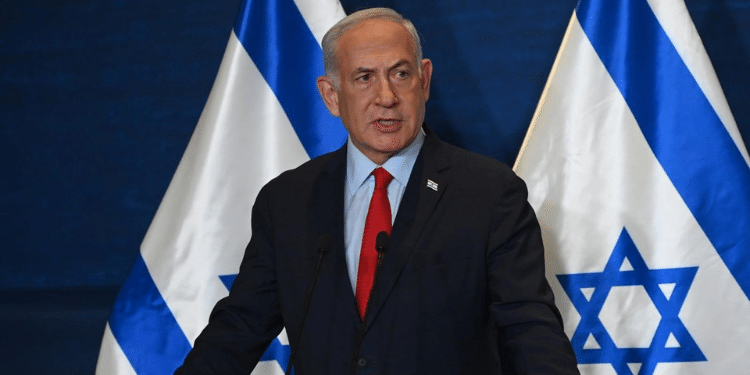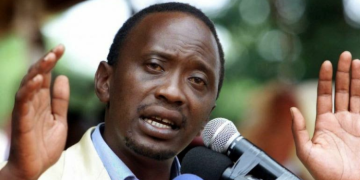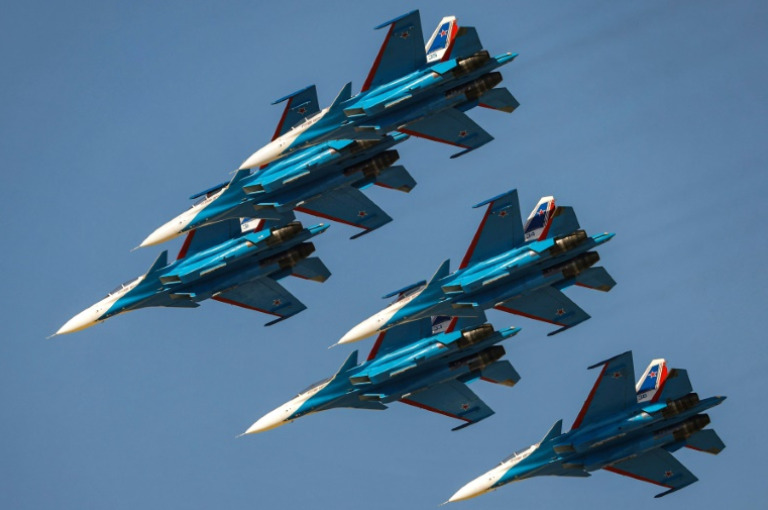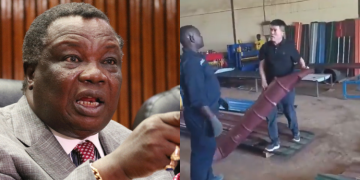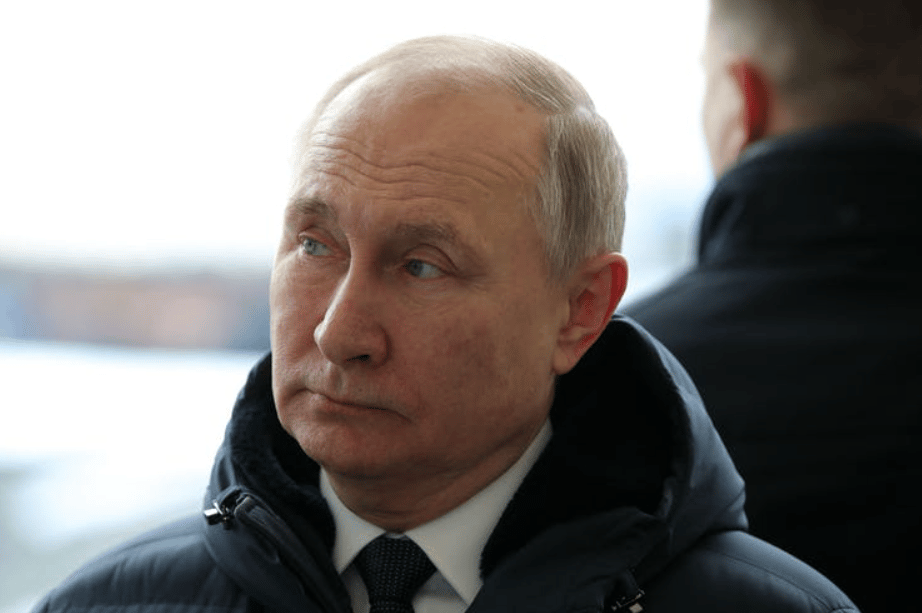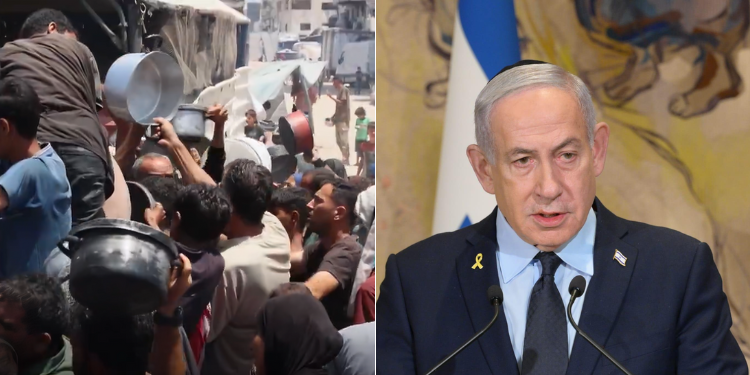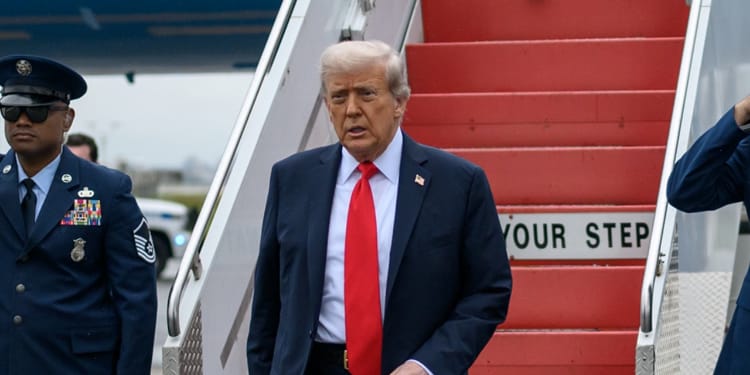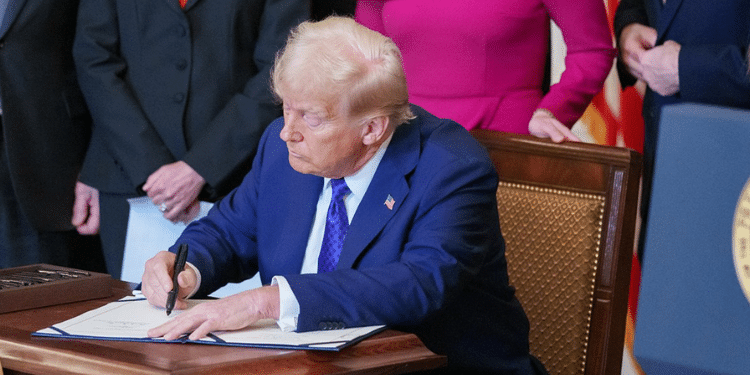From New York to Nairobi, the same warning is echoing: Gaza is running out of time.
Twenty-five foreign ministers—among them the UK, Australia, France, Spain, and Japan—have today stood alongside senior EU officials to demand that Israel let Gaza aid in, and fast.
Their joint message, delivered with an urgency rare in diplomatic circles, said the humanitarian suffering in Gaza had reached “unimaginable levels.” Famine, they warned, is no longer a distant threat. It’s on the doorstep.
They urged Israel to drop restrictions that block international aid agencies and to guarantee safe passages for food, shelter, materials, medicine, water, and fuel.
The ministers, along with EU foreign policy chief Kaja Kallas, called on the government of Israel to let in aid immediately and allow essential humanitarian organizations to operate in Gaza.
“Urgent action is needed now to halt and reverse starvation,” they said.
At the same time, the World Health Organization painted an equally grim picture. Gaza’s hospitals are running out of medicine; half are shut altogether, and many that remain open are so full they’re treating patients in corridors and stairwells. In some cases, bed occupancy has doubled or tripled. “Catastrophic” was the word WHO chose.
Then came another shock. An Israeli strike killed six journalists, including Al Jazeera’s Anas al-Sharif, as they sheltered in a tent clearly marked for media use.
Jodie Ginsberg, head of the Committee to Protect Journalists, said Gaza has now become the deadliest war zone for reporters in modern history. Hundreds of journalists and media workers, she noted, have died since the conflict began. “This is the deadliest conflict for journalists that CPJ has ever documented,” Ginsberg said.
Pressure on Israel is growing elsewhere, too. The Council of Europe—representing 46 countries—has told its members to stop arms transfers that could contribute to human rights violations. Germany has already suspended certain exports.
And there’s another front of diplomacy unfolding. France, Germany, and the UK—known collectively as the E3—have given Iran until the end of August to return to nuclear talks. If not, they’ve warned, they’ll use the UN’s “snapback” mechanism to restore sanctions. The E3 say they’re open to extending the deadline, but stress they have the legal grounds to act.
Also Read: Trump Says Israel Has Agreed to Gaza Ceasefire Terms
At Home in Kenya
In Kenya, President William Ruto remains silent for now but has chosen his words carefully in the past. Once calling Israel “a great friend of Kenya,” he nevertheless stressed that “military means cannot resolve the conflict” and repeated his government’s backing for a two-state solution.
Foreign Affairs Principal Secretary Korir Sing’Oei offered a sharper line earlier this year. The Foreign Office, he said, still holds that violations of international humanitarian law in Gaza are unacceptable.
“Kenya abhors the gross violation of international humanitarian law in Gaza,” he said, calling for an immediate ceasefire and the start of direct talks. Dialogue, he added, is “critical to resolve the difficult issues that underpin the current escalation.”
Also Read: Israel Responds to Banning Baby Formula and Food for Children in Gaza
Nairobi Voices Amid Gaza’s Human Toll
Strip away the communiqués and resolutions, and what’s left are faces: the boy filling a plastic jug from a battered water tank, the nurse reusing bandages because there are no more in storage, the cameraman who doesn’t return from the field.
These are the stories The Kenya Times would have chased—human first, politics second.
Diplomats speak of a “flood of aid” and an “unfolding genocide.” On the ground, the language changes. A mother wonders if her baby will eat tomorrow. A surgeon improvises under torchlight because the generator has failed again.
The ministers’ plea is blunt: famine isn’t coming; it’s here. The WHO’s numbers—hospitals at 240–300% capacity—translate into patients lying on floors, IV drips tied to windows, and doctors making choices they should never have to make.
When journalists like Anas al-Sharif are killed, it’s not just a life cut short—it’s a story untold. Ginsberg’s warning hangs in the air: if the world won’t act now, how many more will die before the truth itself is silenced?
Europe’s arms pause and the E3’s pressure on Iran might not end the war, but they are signals that the world is watching. And in Nairobi, Ruto’s current careful diplomacy, but previous condemnation of the events in Gaza, show that Kenya is willing to speak plainly when the stakes are life and death.
Every statement matters. Every pause in the fighting, every truck that makes it through, every voice that demands the killing stop—together they form the fragile hope that Gaza’s people might see another day in peace.
Follow our WhatsApp Channel and X Account for real-time news updates.
